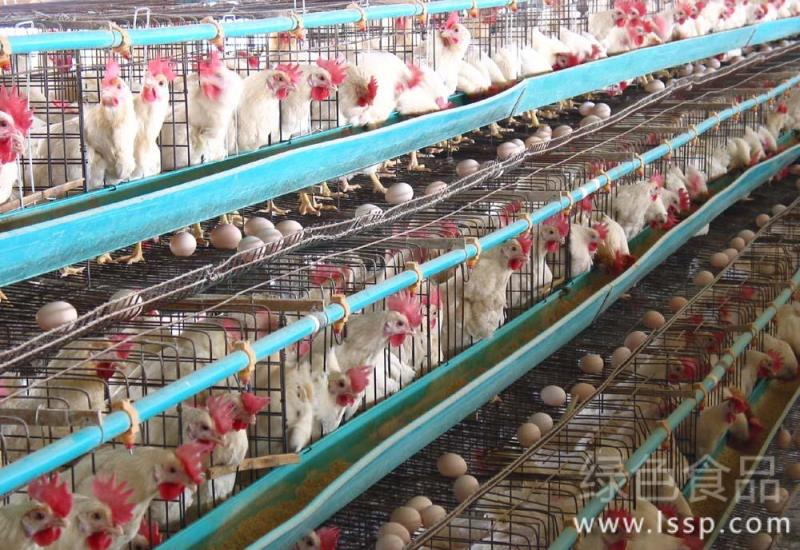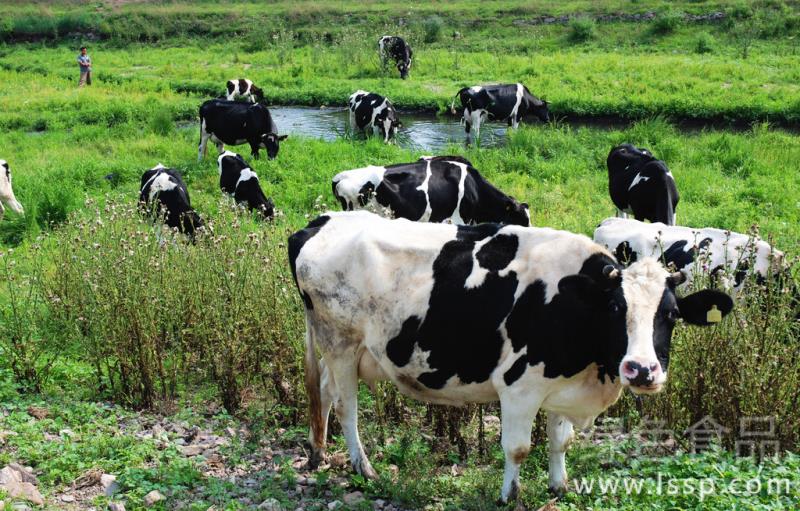Salpingitis leads to difficulty in laying eggs How to prevent and treat laying hens with hose infection
Chicken ovulitis, salpingitis and peritonitis is one of the common diseases in chickens, especially in laying hens. The performance of laying hens is as follows: painful and restless, producing eggs with blood stains on their shells. Yellow and white purulent secretions are often excreted in the fallopian tubes of laying hens, which pollute around the anus and feathers, making it difficult to lay eggs. With the development of the disease, the laying hens begin to have a fever, and then the fever recedes, the pain is restless, they stand still, their wings droop, their feathers are loose, and some layers lean on the ground or fall asleep. When the inflammation extends to the abdominal cavity, it causes peritonitis or tubal rupture, causing yolk peritonitis in laying hens.

Laying hens
Clinically, it is characterized by inflammation of ovary, fallopian tube and peritoneum of laying hens. in severe cases, the follicles are deformed, congested, bleeding, reddish brown or grayish brown, or even ruptured, and the yolk fluid ruptured in the abdominal cavity of laying hens smells foul-smelling, sometimes follicles shrink, and the shape is irregular, golden or brown, no luster, intestinal adhesion, yellowish-white cheese-like substance in the fallopian tubes of laying hens.
The hygienic conditions of laying hens are poor, and the cloaca is contaminated by bacteria such as Salmonella pullorum, paratyphoid bacilli and Escherichia coli to invade the fallopian tubes of laying hens; or too much animal feed, laying too large eggs, laying double yellow eggs, sometimes eggs rupture in the fallopian tube, damaging the fallopian tube; or too many eggs, lack of vitamin A, D, E in feed, etc., can lead to salpingitis in laying hens. Layers suffer from salpingitis, resulting in tubal prolapse, dystocia and so on.
Strengthen management, improve the sanitary conditions of laying hens, mix diets reasonably, and give laying hens some green feed properly. As most of the layers' transfusion bronchitis is caused by bacterial infection, the cured layers should not be reserved for breeding.
Generally secondary infection (mostly variant transmission), the main ingredients: amoxicillin with antiviral drugs, multi-dimensional drinking water. You can't give laying hens sulfa coccidiosis. It is recommended to use antiviral antipyretic drugs + antibacterial anti-inflammatory + vitamin mixed drinking water, comprehensive treatment for 3 days.
- Prev

Fish enteritis will die soon how to prevent and cure freshwater fish enteritis
Fish enteritis will die soon how to prevent and cure freshwater fish enteritis
- Next

How to prevent and treat cow heatstroke due to cold tolerance and heat stroke
How to prevent and treat cow heatstroke due to cold tolerance and heat stroke
Related
- On the eggshell is a badge full of pride. British Poultry Egg Market and Consumer observation
- British study: 72% of Britons are willing to buy native eggs raised by insects
- Guidelines for friendly egg production revised the increase of space in chicken sheds can not be forced to change feathers and lay eggs.
- Risk of delay in customs clearance Australia suspends lobster exports to China
- Pig semen-the Vector of virus Transmission (4)
- Pig semen-the Vector of virus Transmission (3)
- Five common causes of difficult control of classical swine fever in clinic and their countermeasures
- Foot-and-mouth disease is the most effective way to prevent it!
- PED is the number one killer of piglets and has to be guarded against in autumn and winter.
- What is "yellow fat pig"? Have you ever heard the pig collector talk about "yellow fat pig"?

